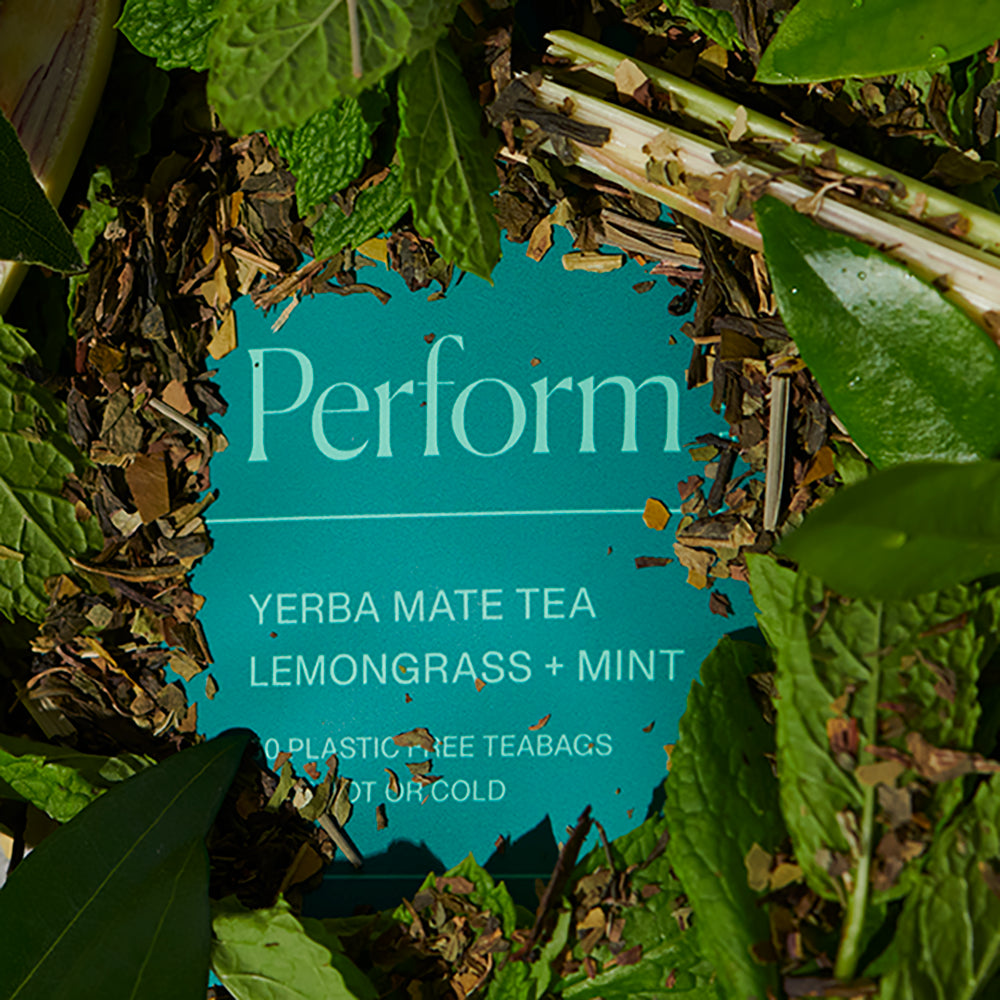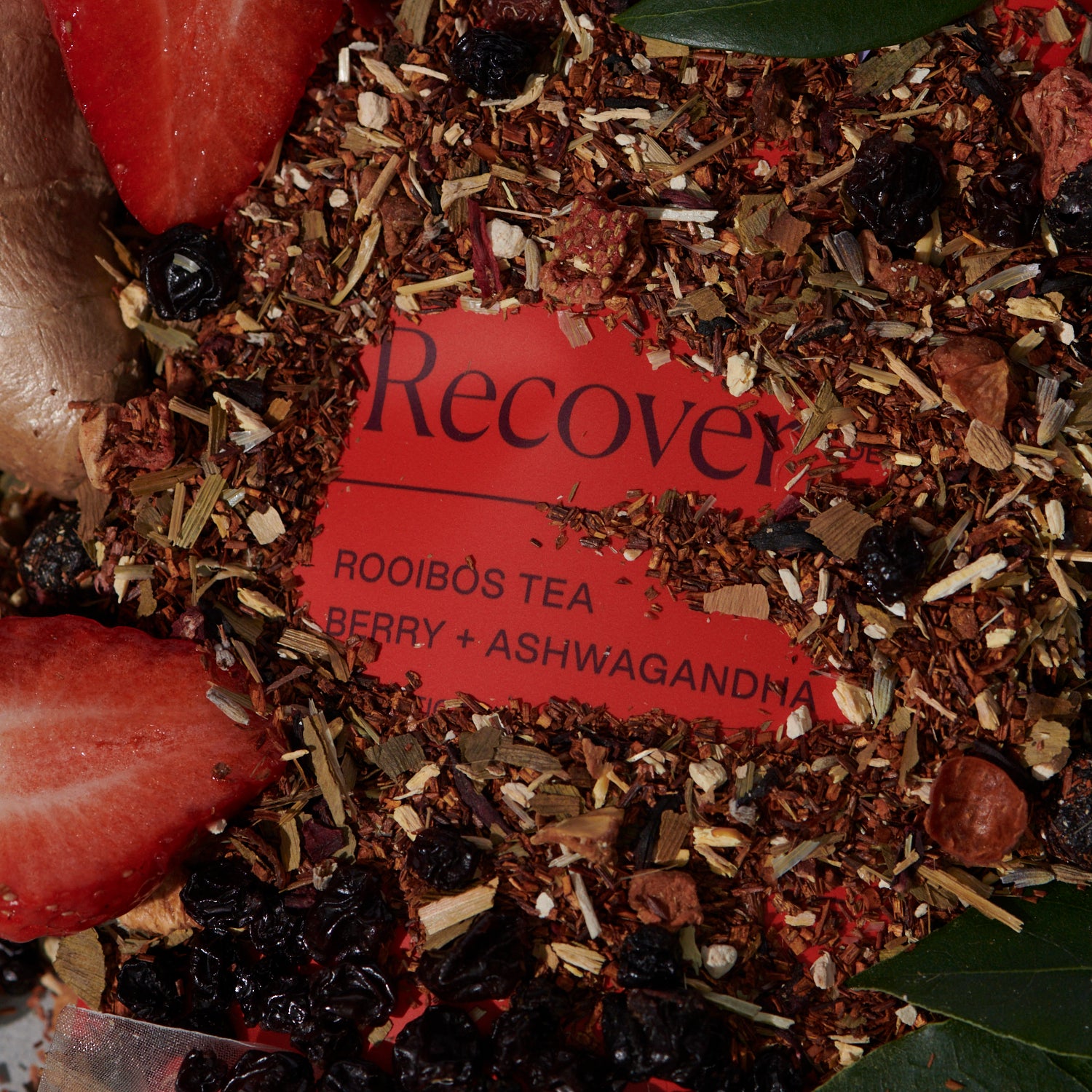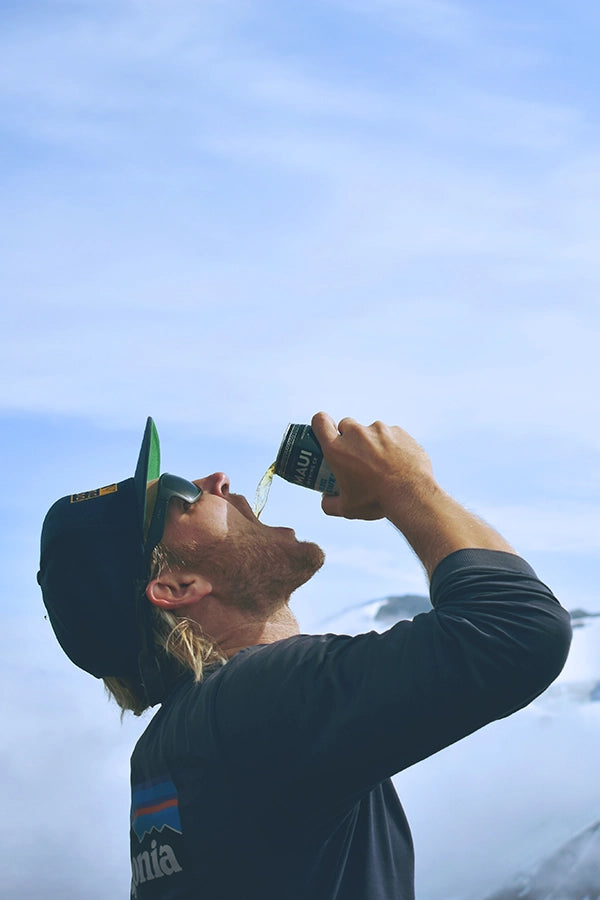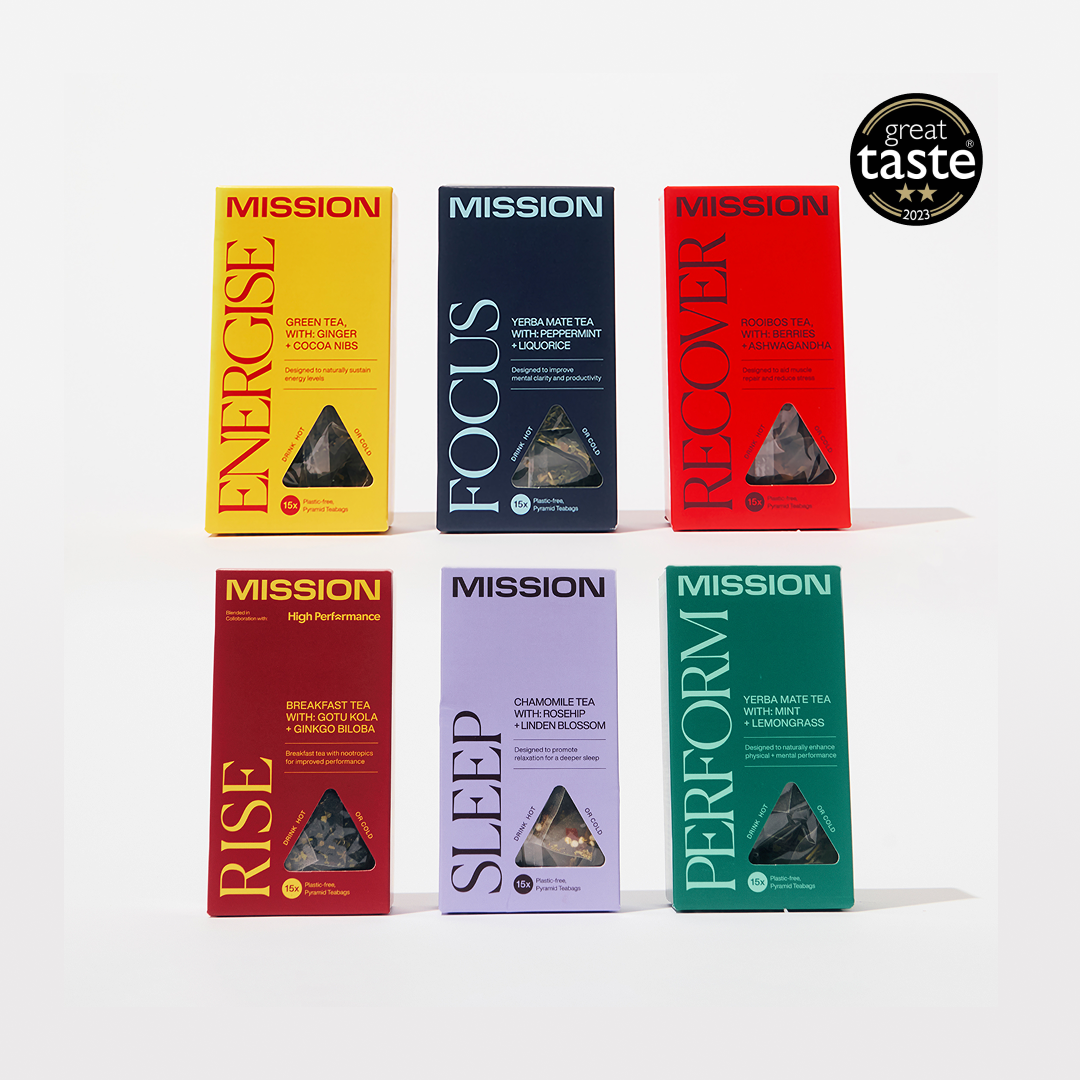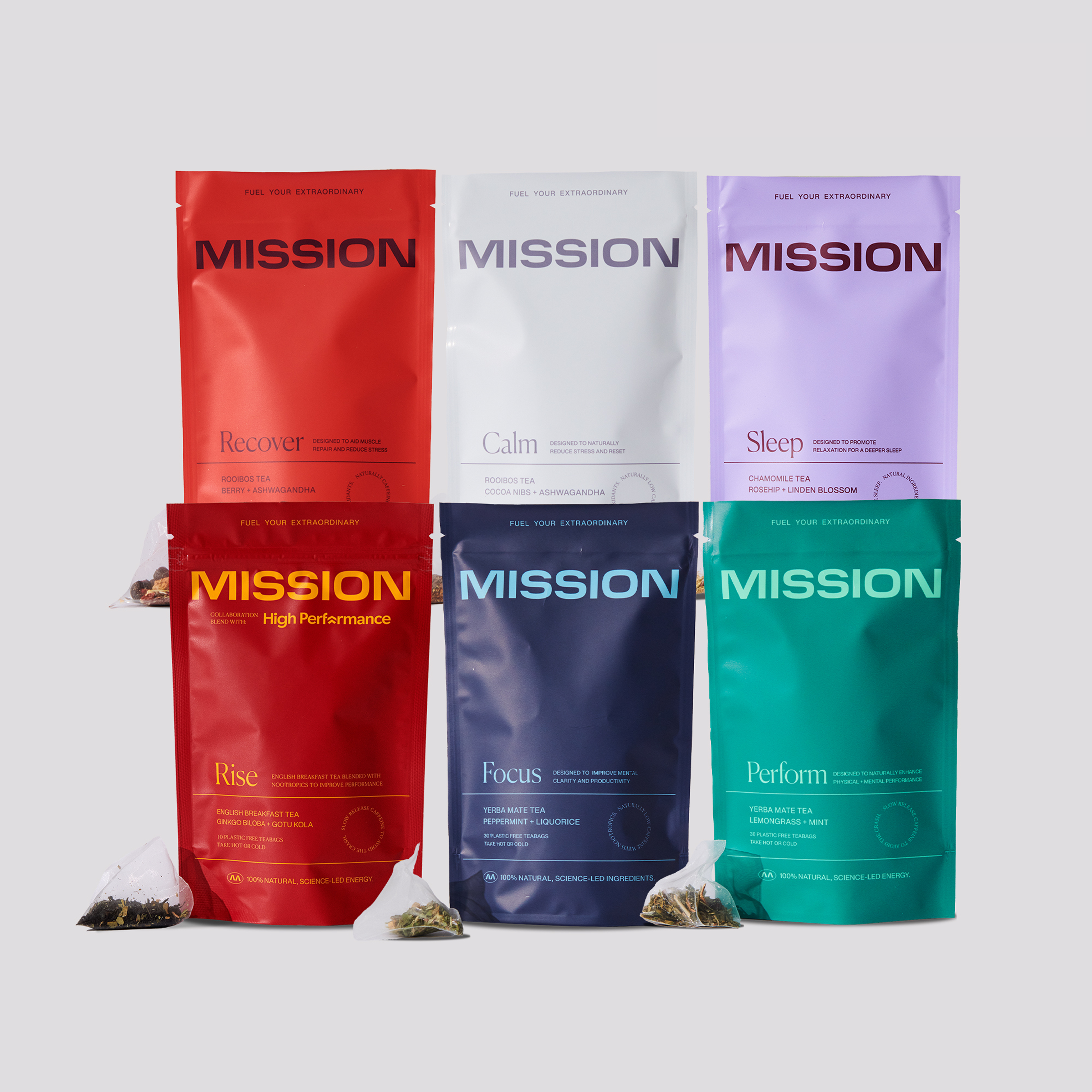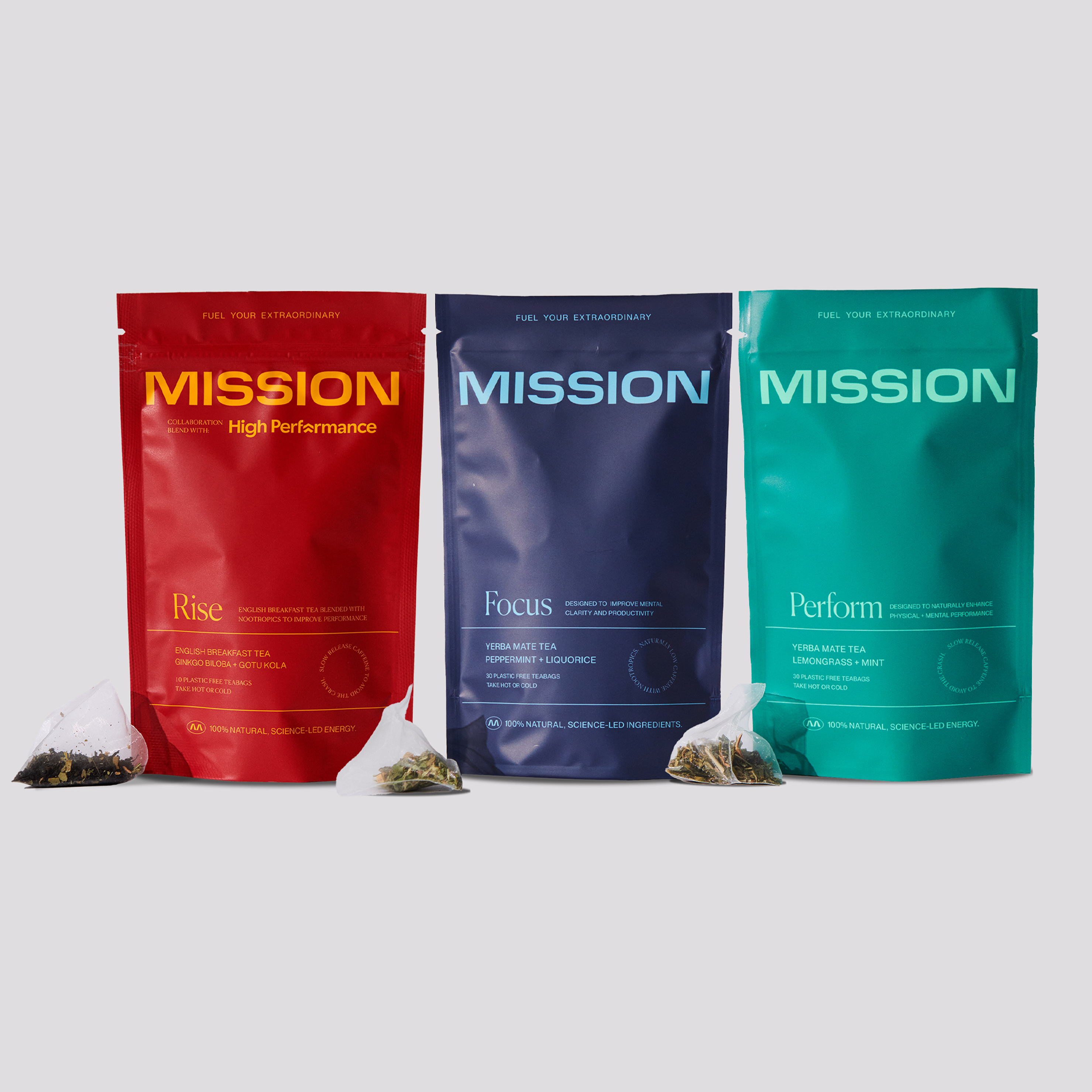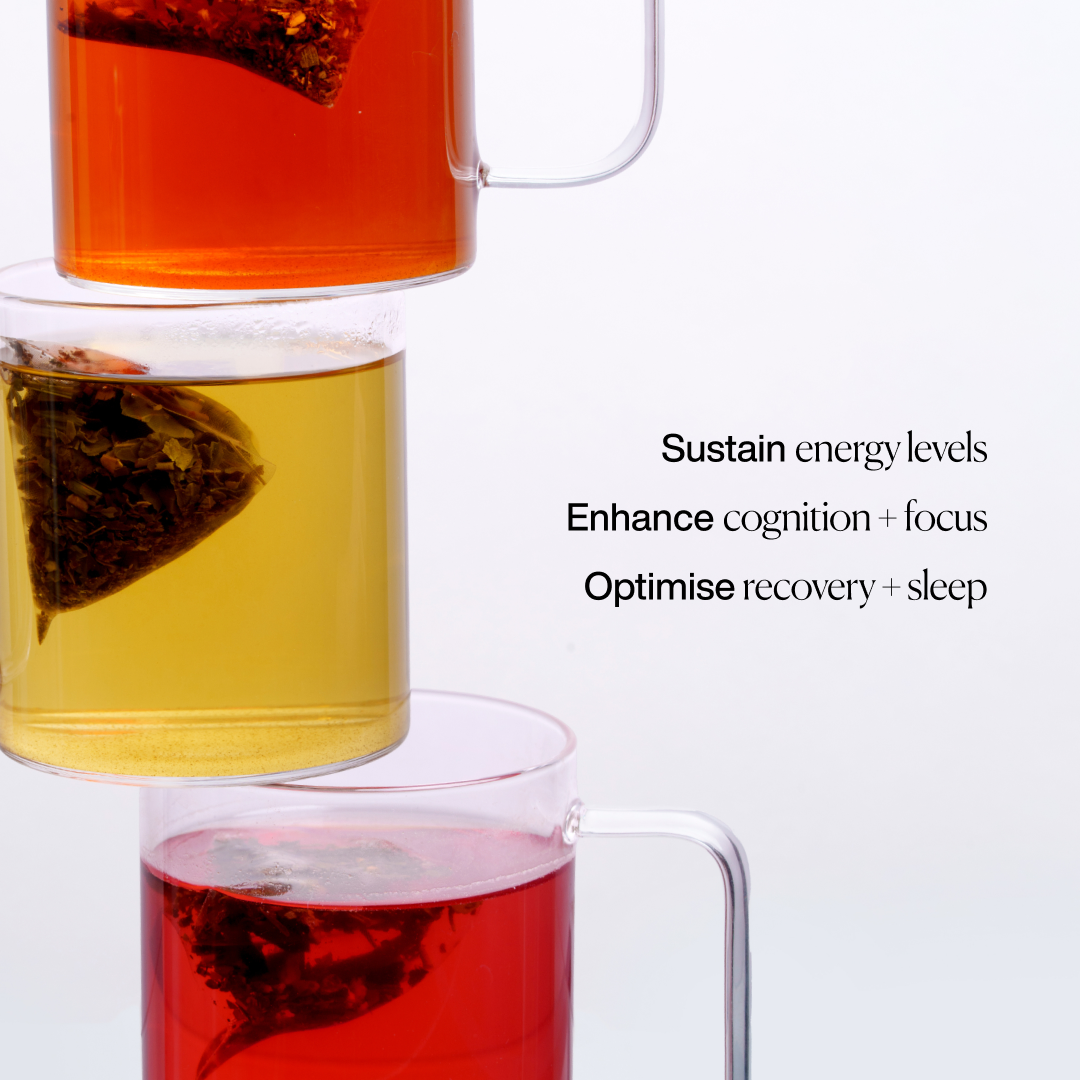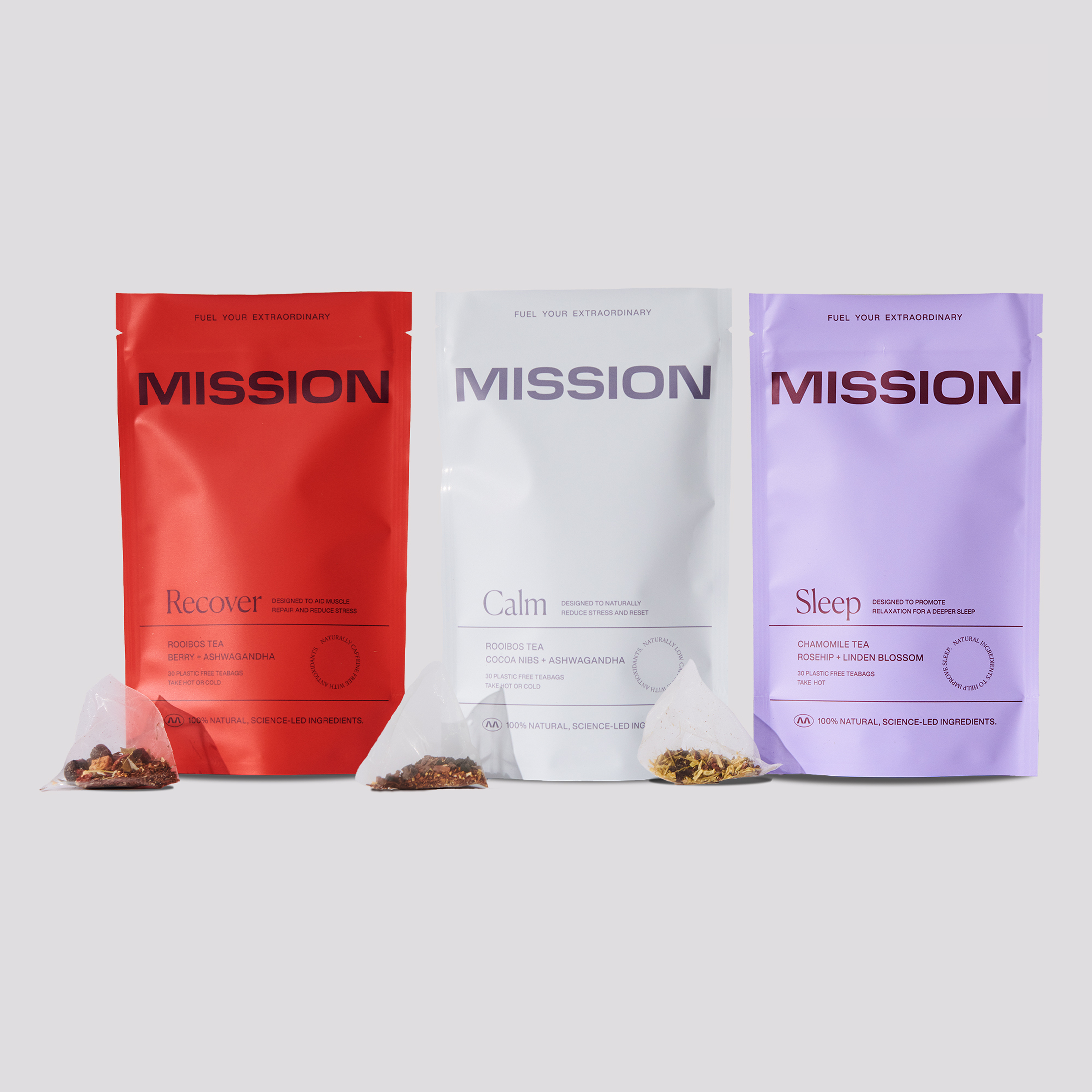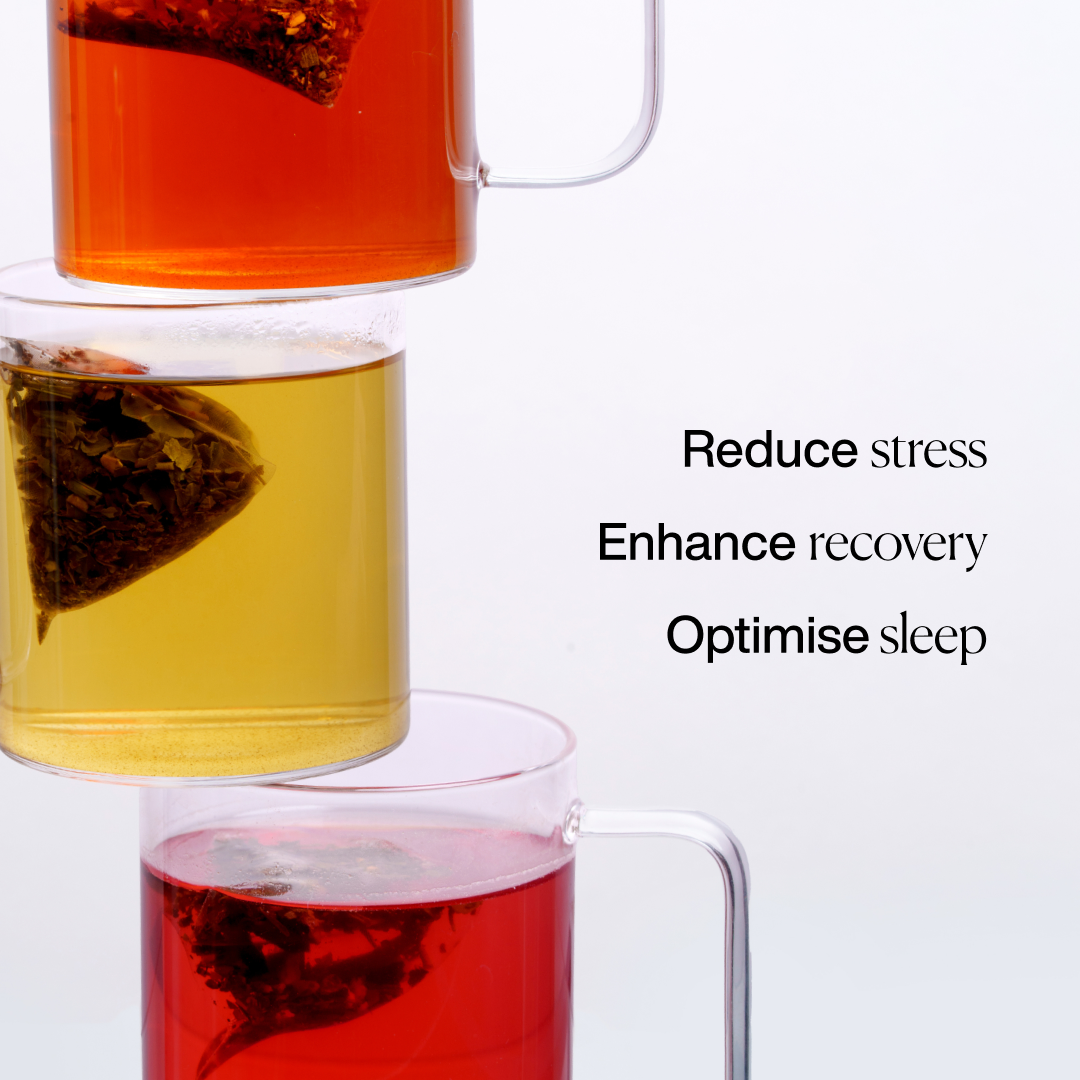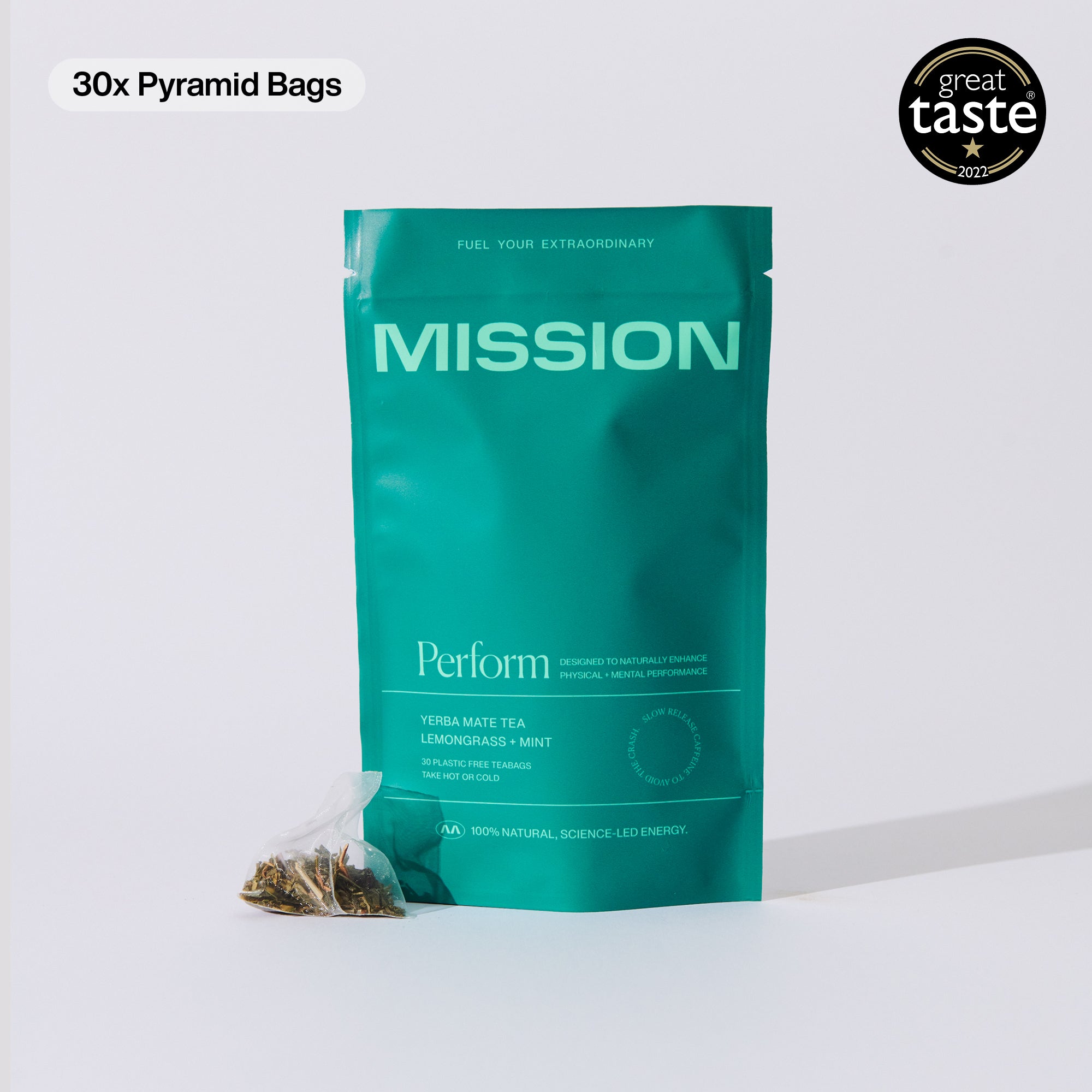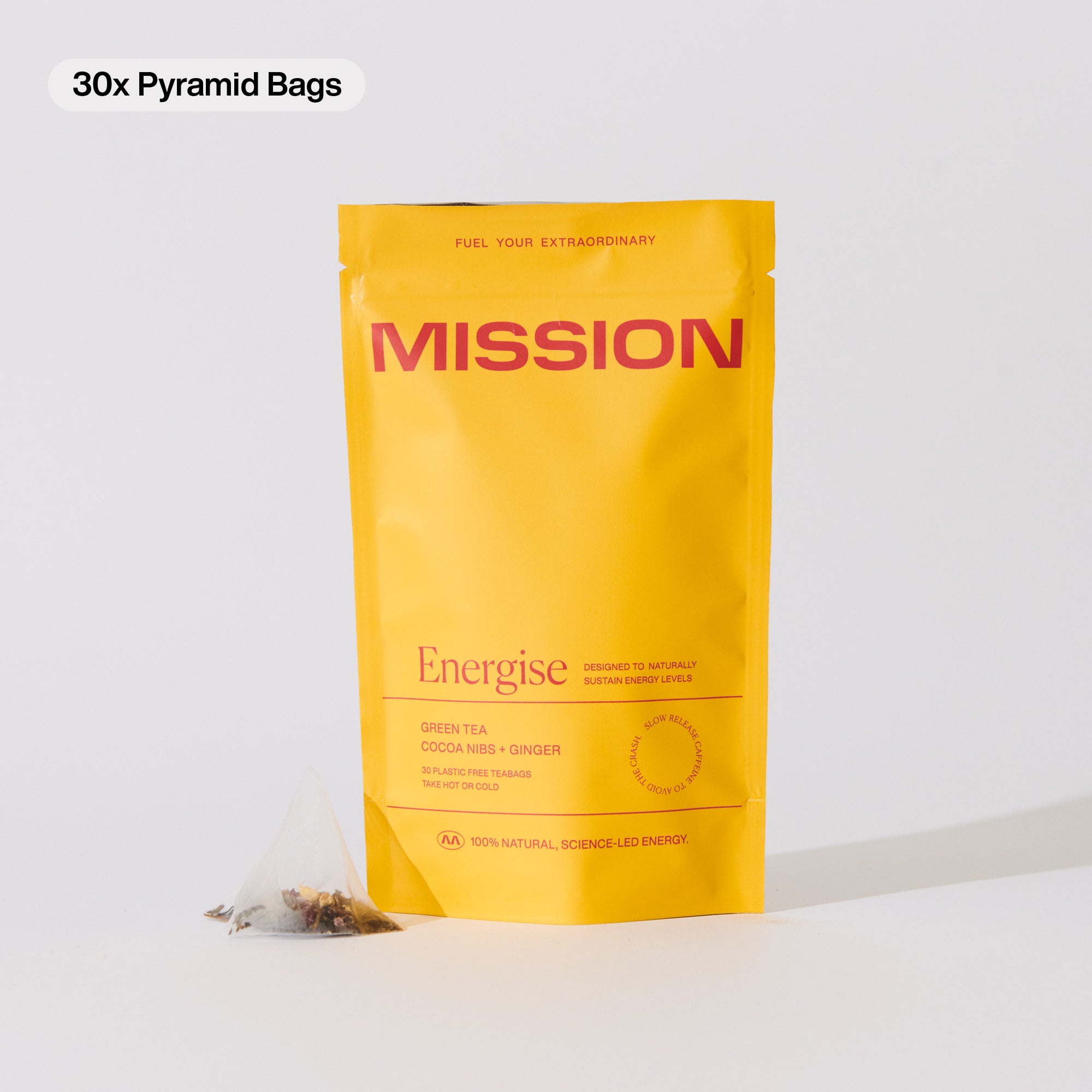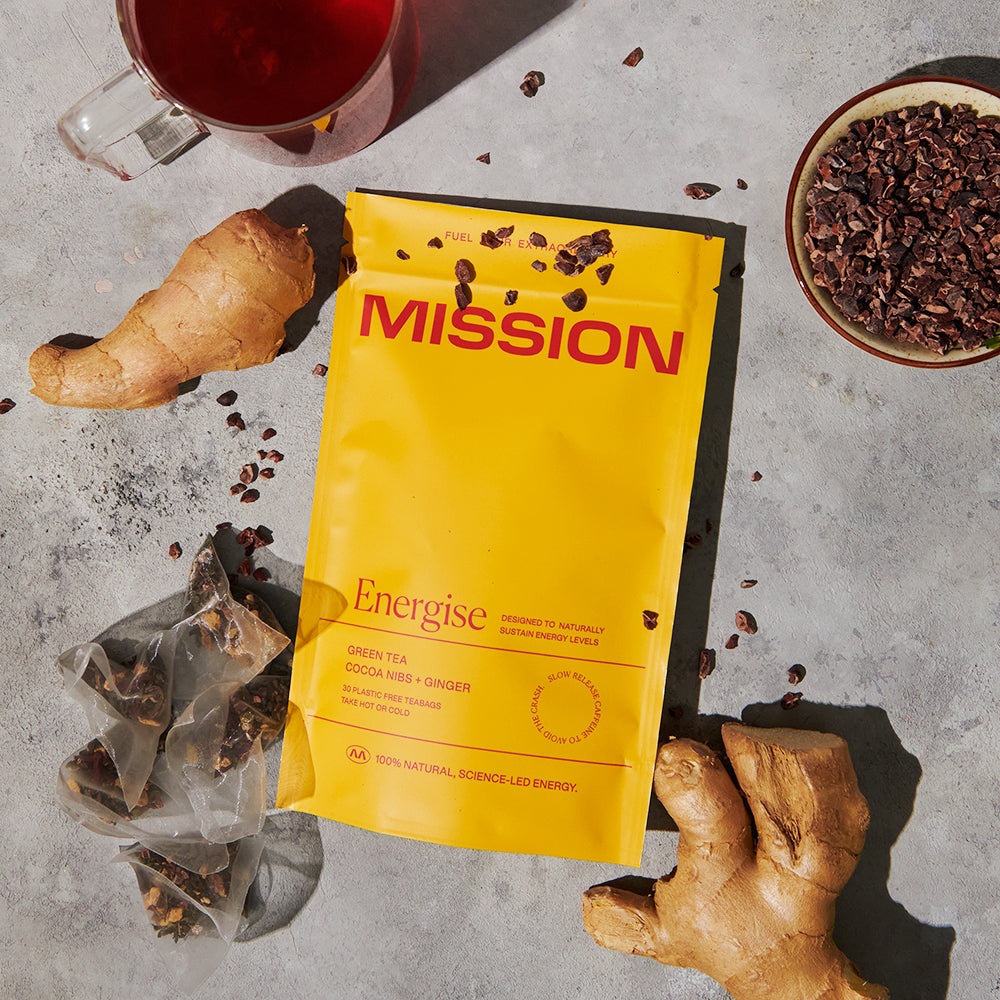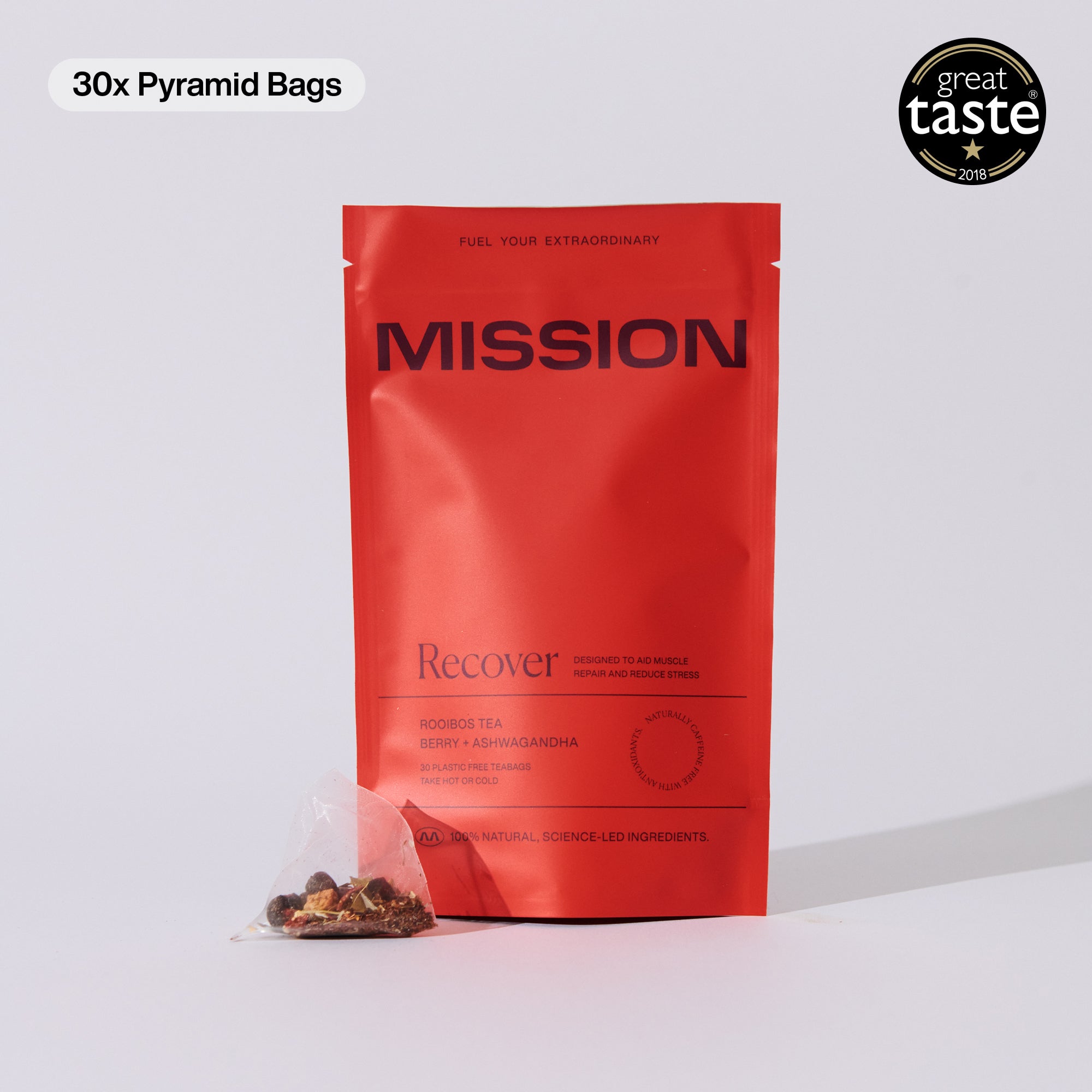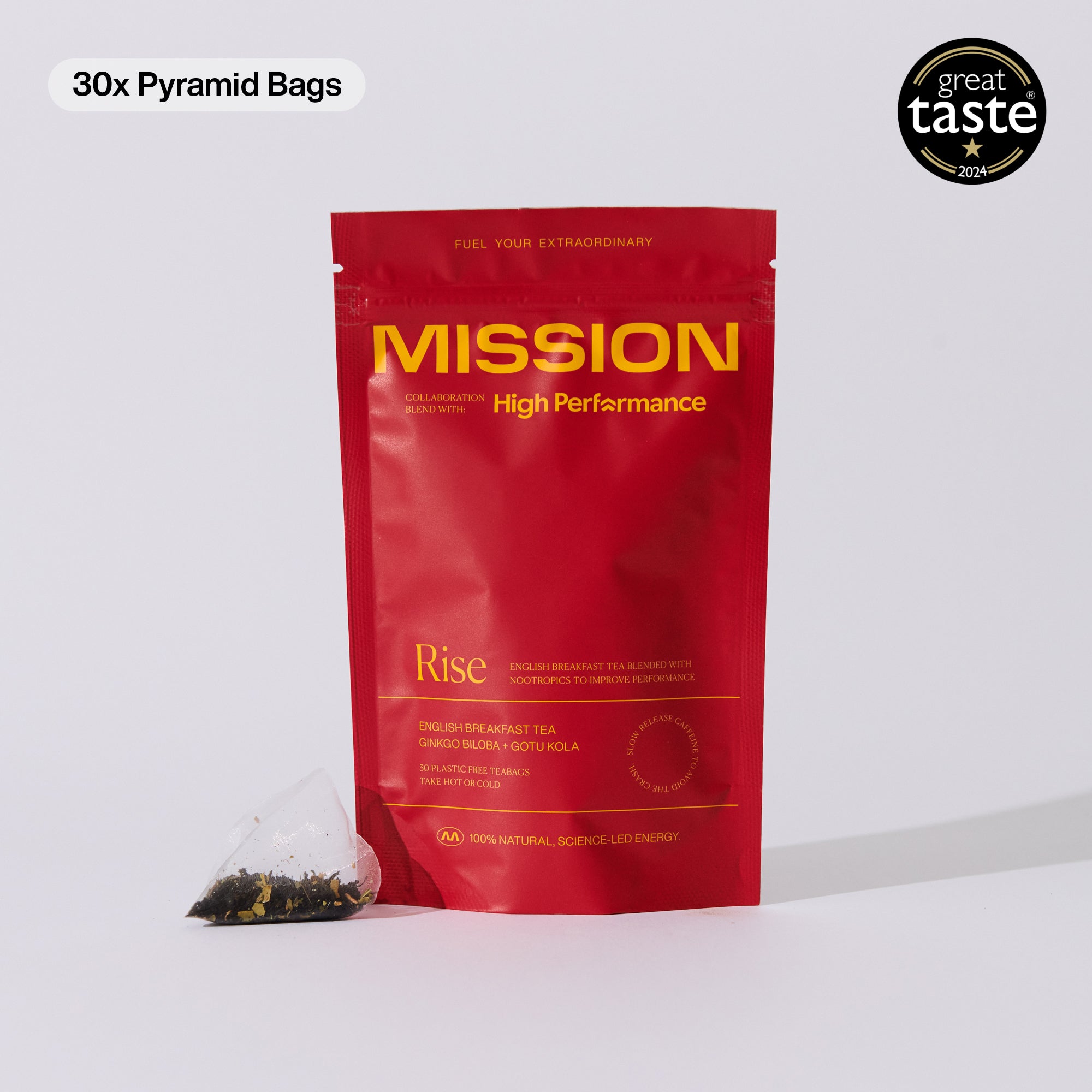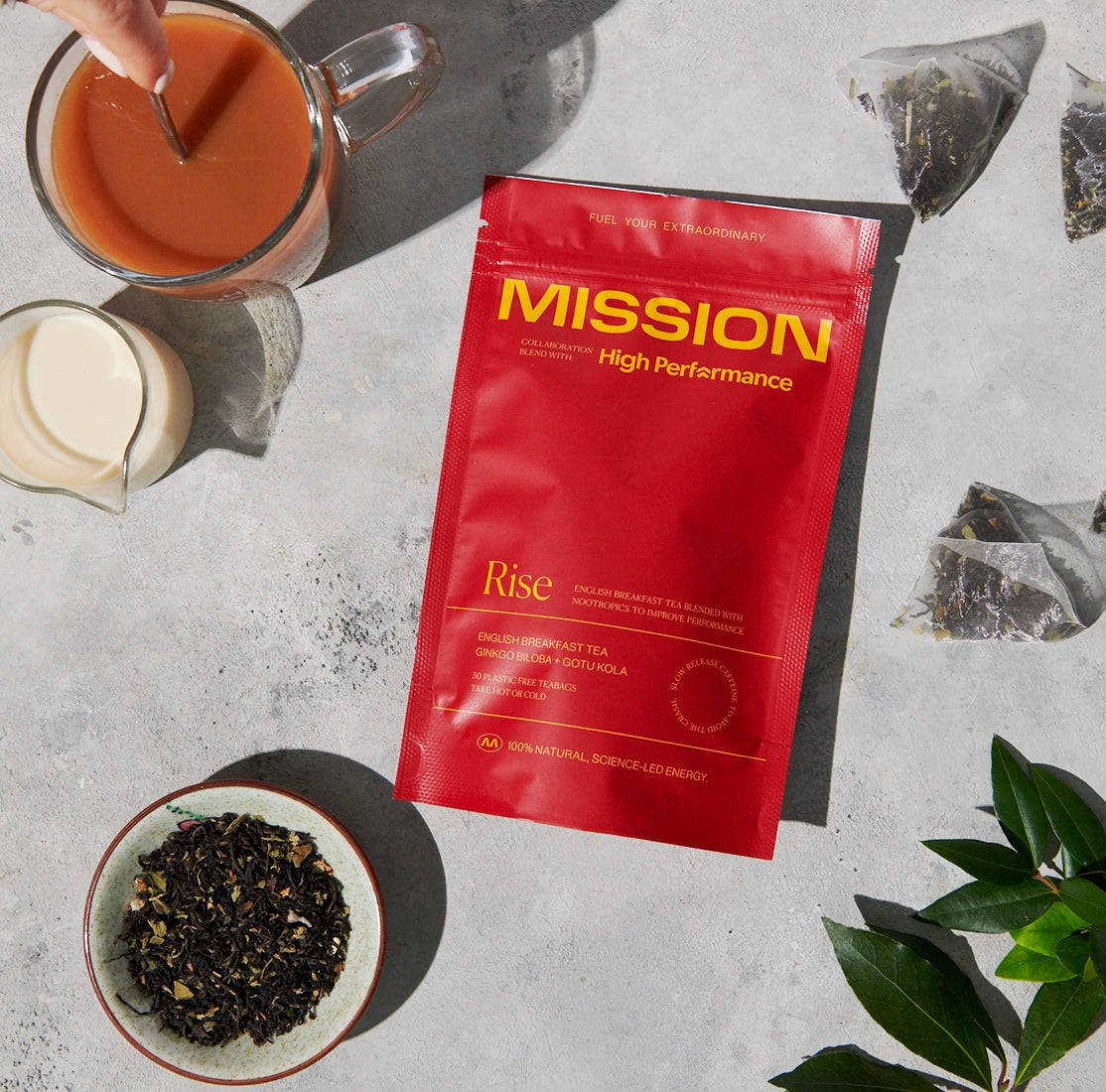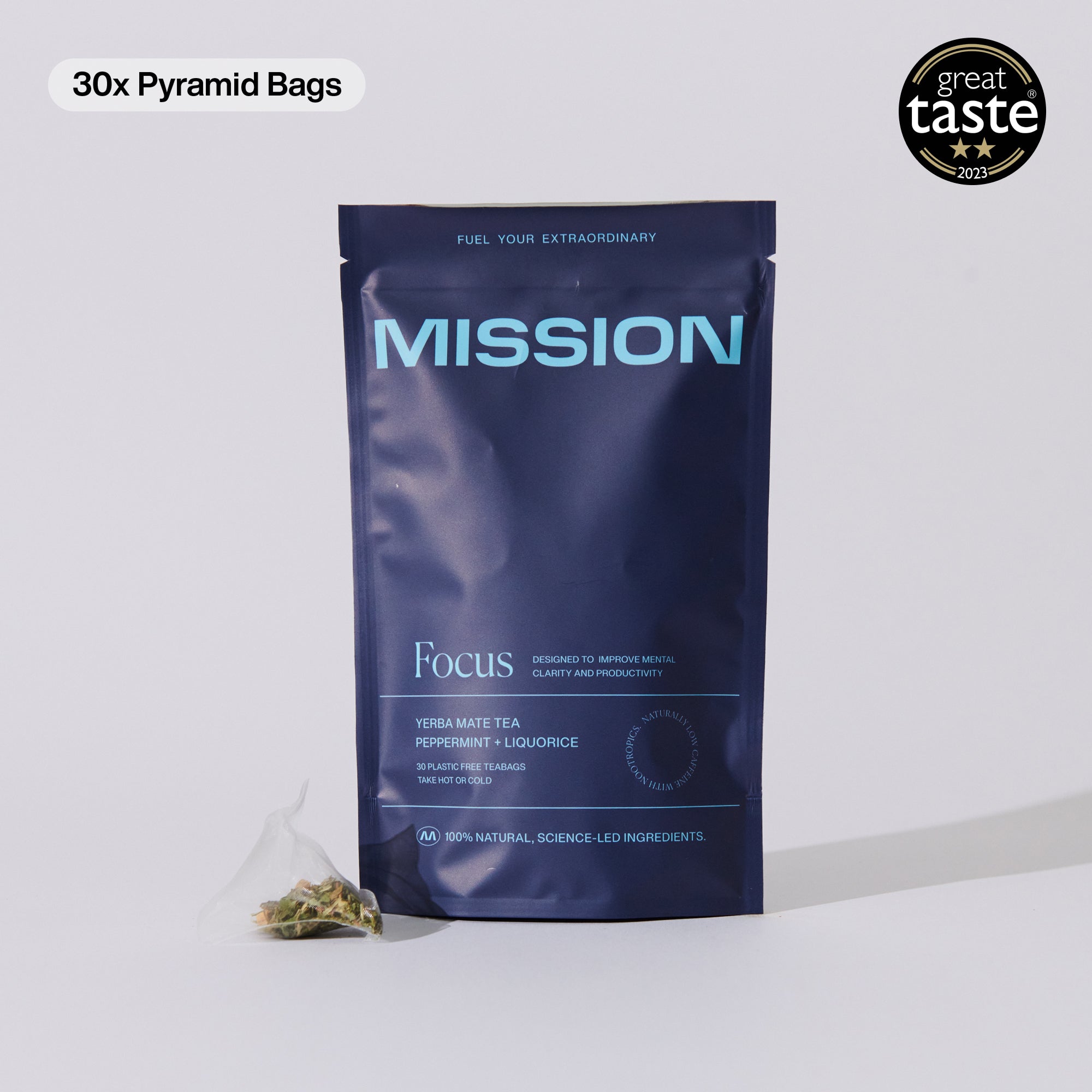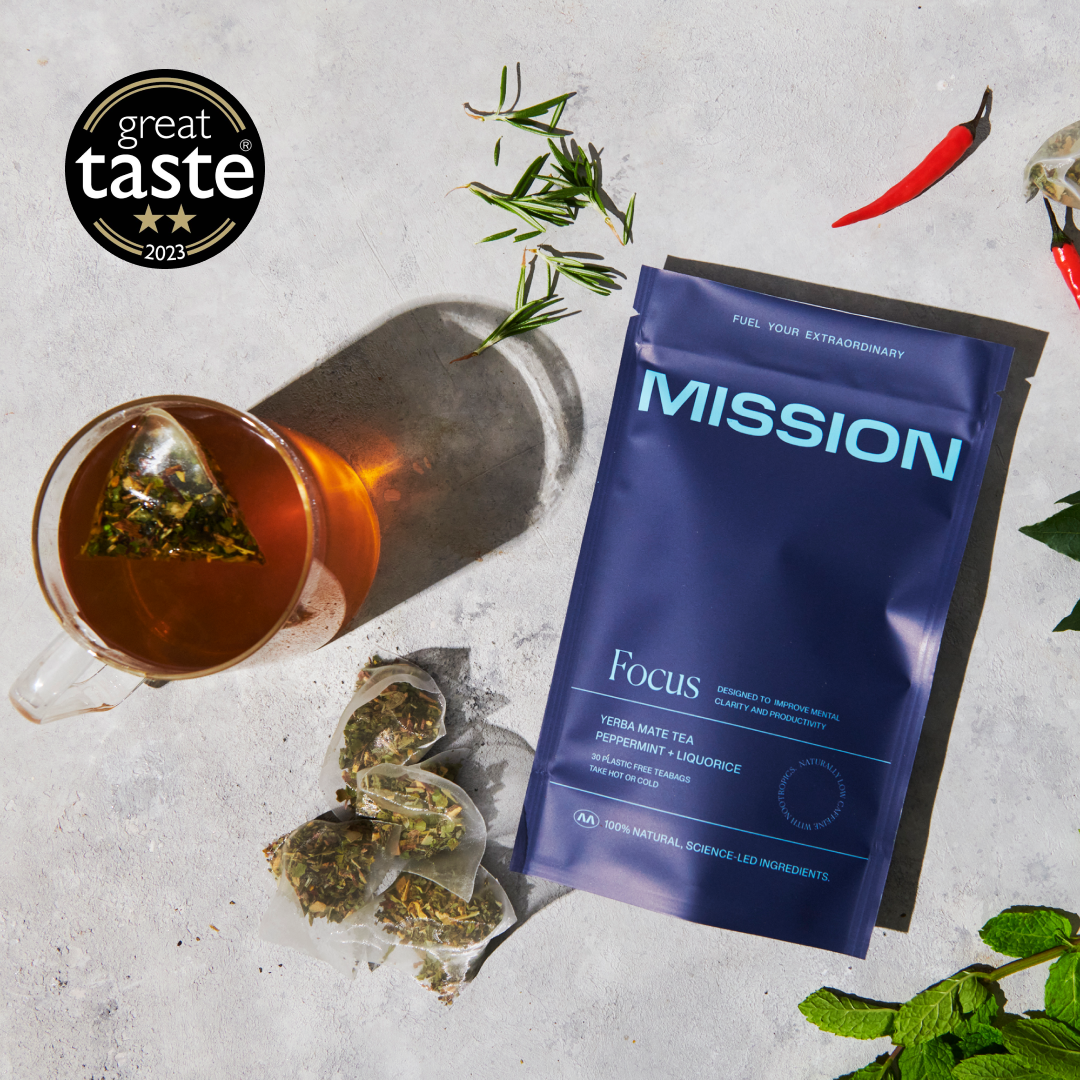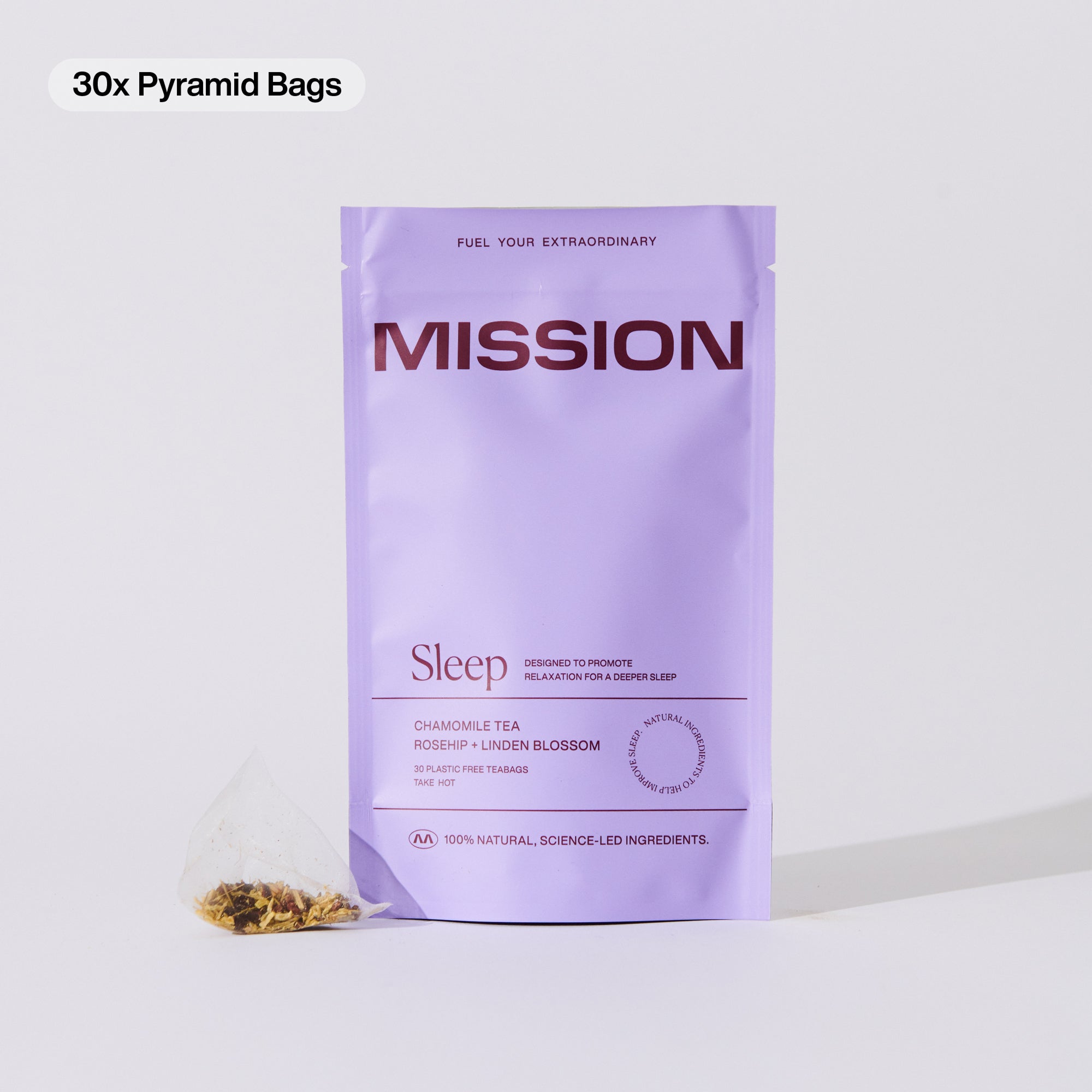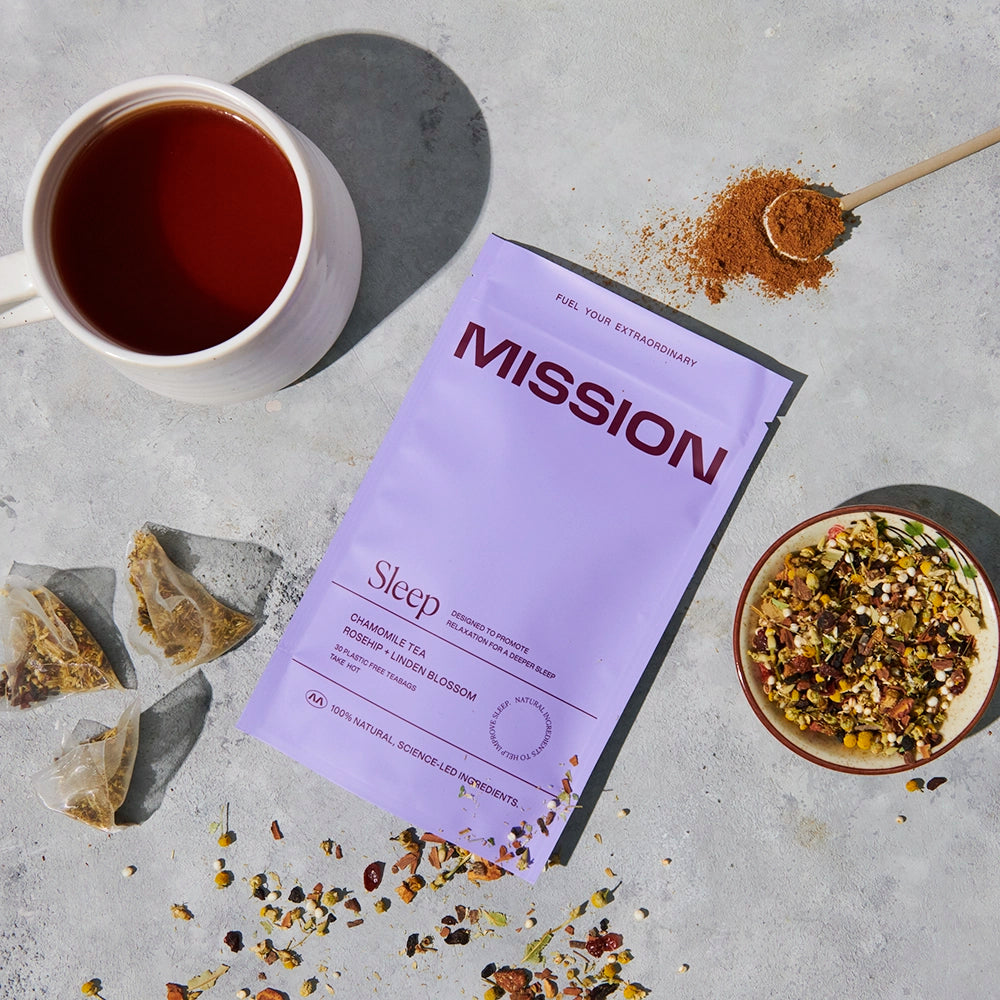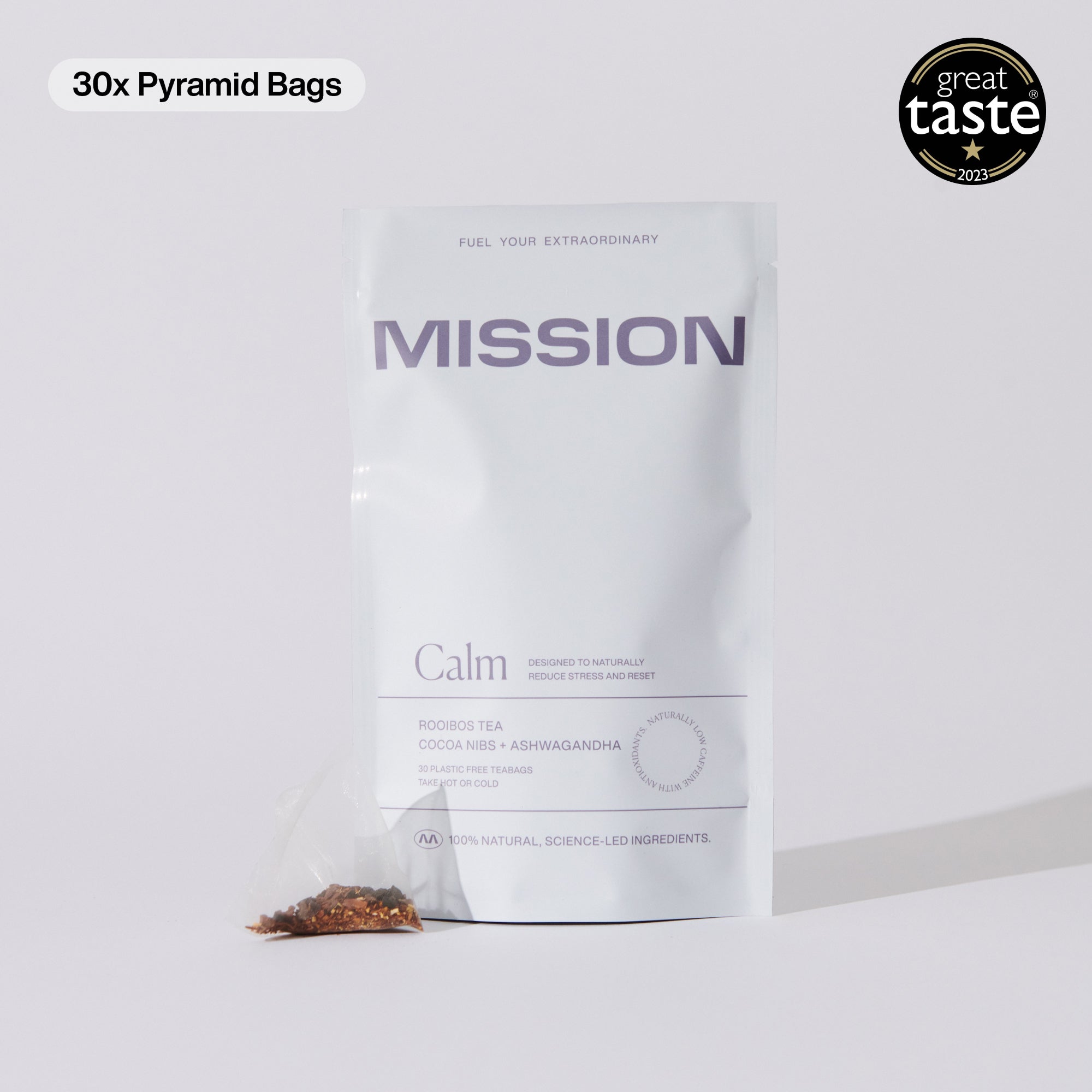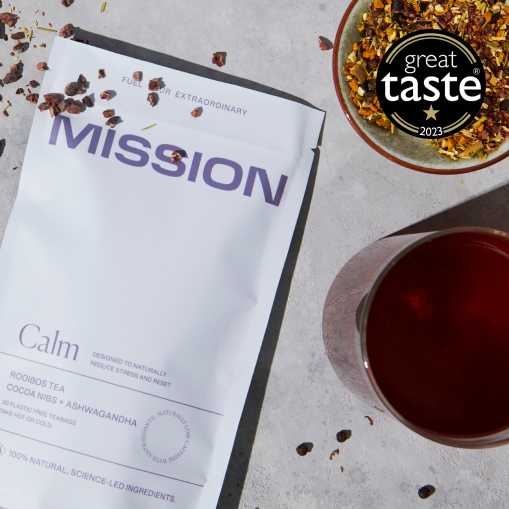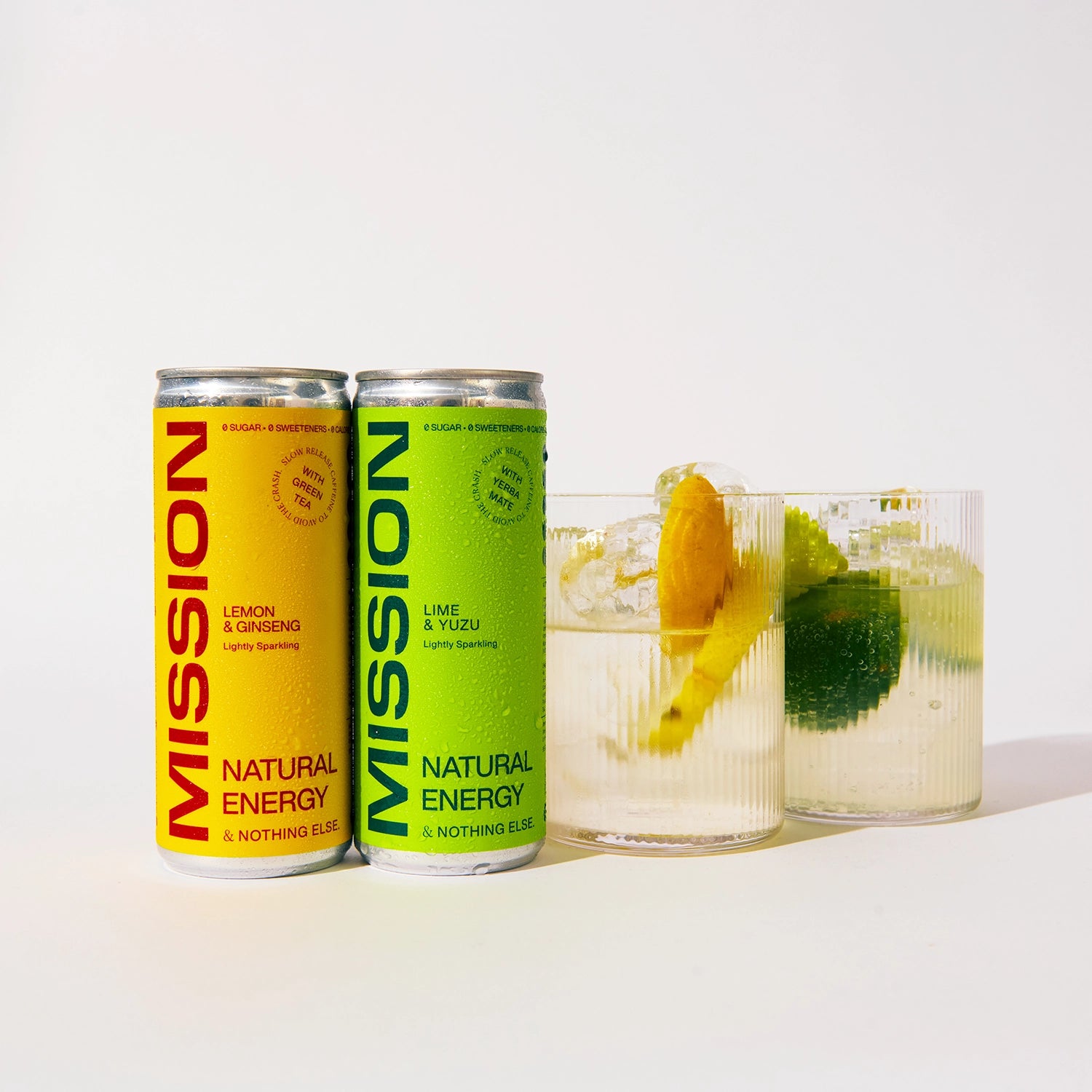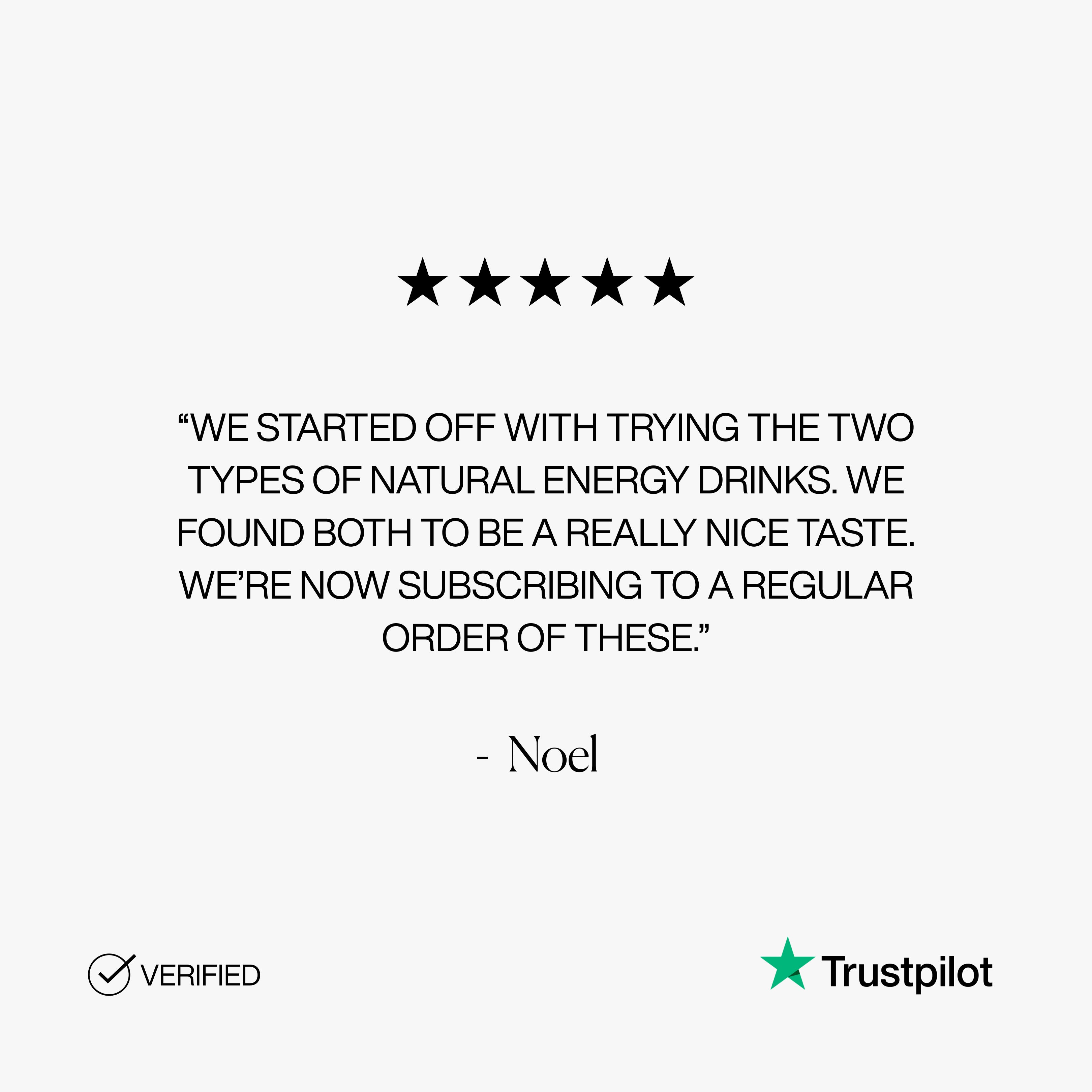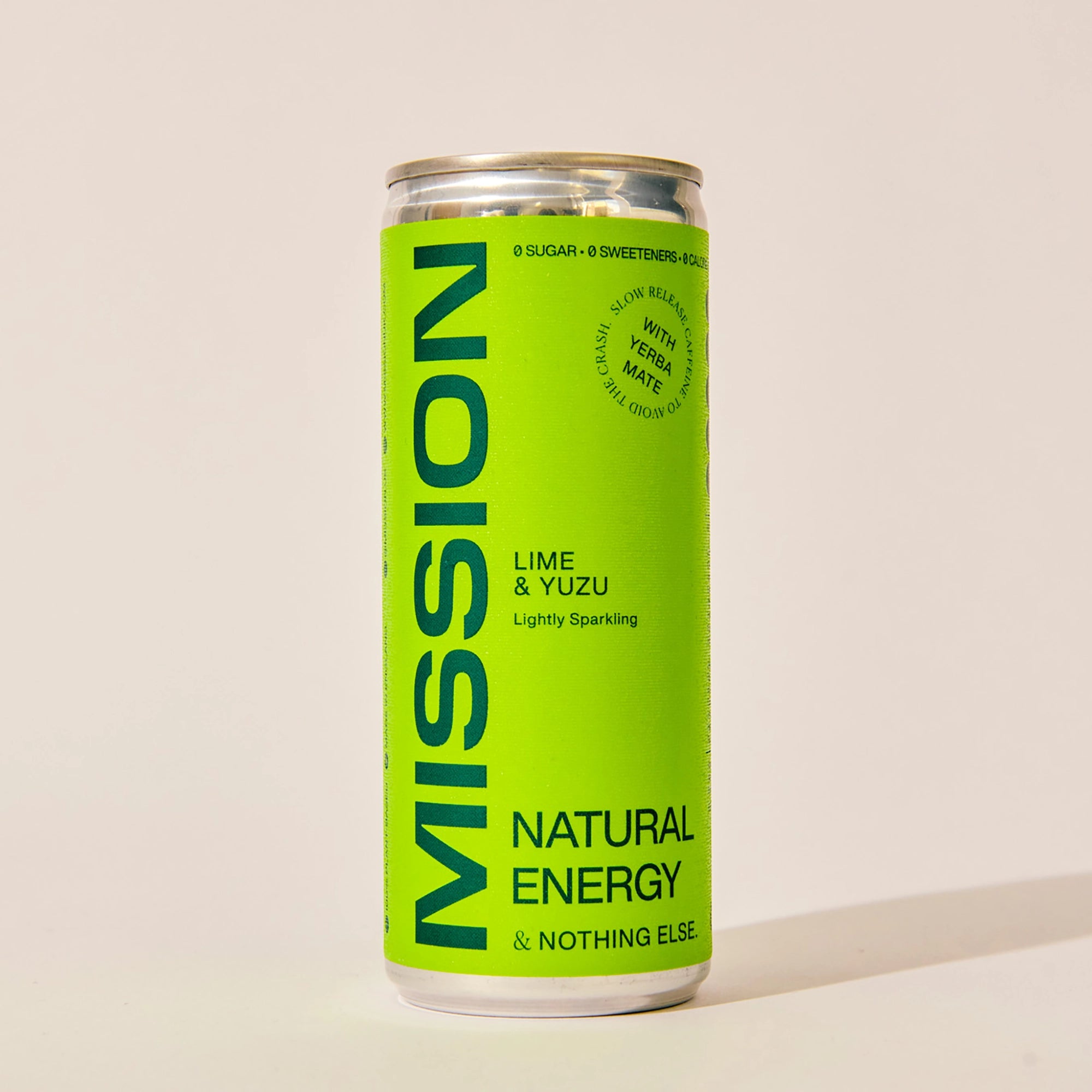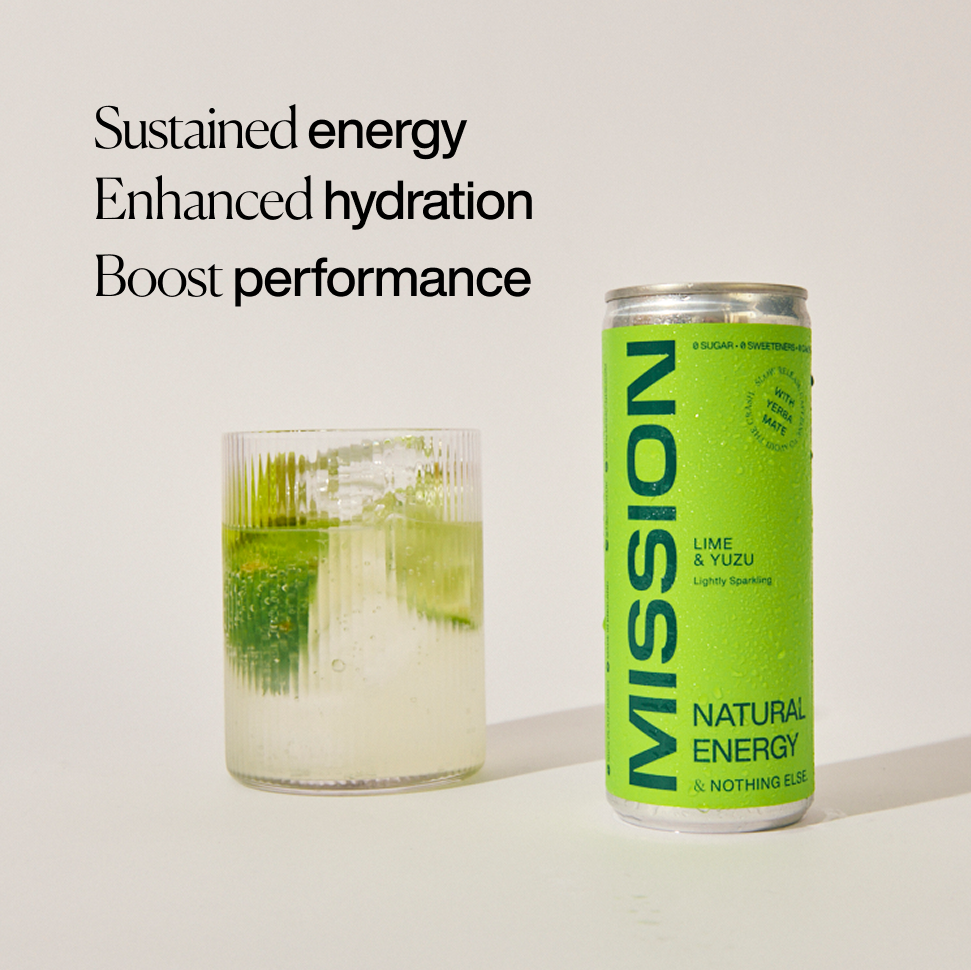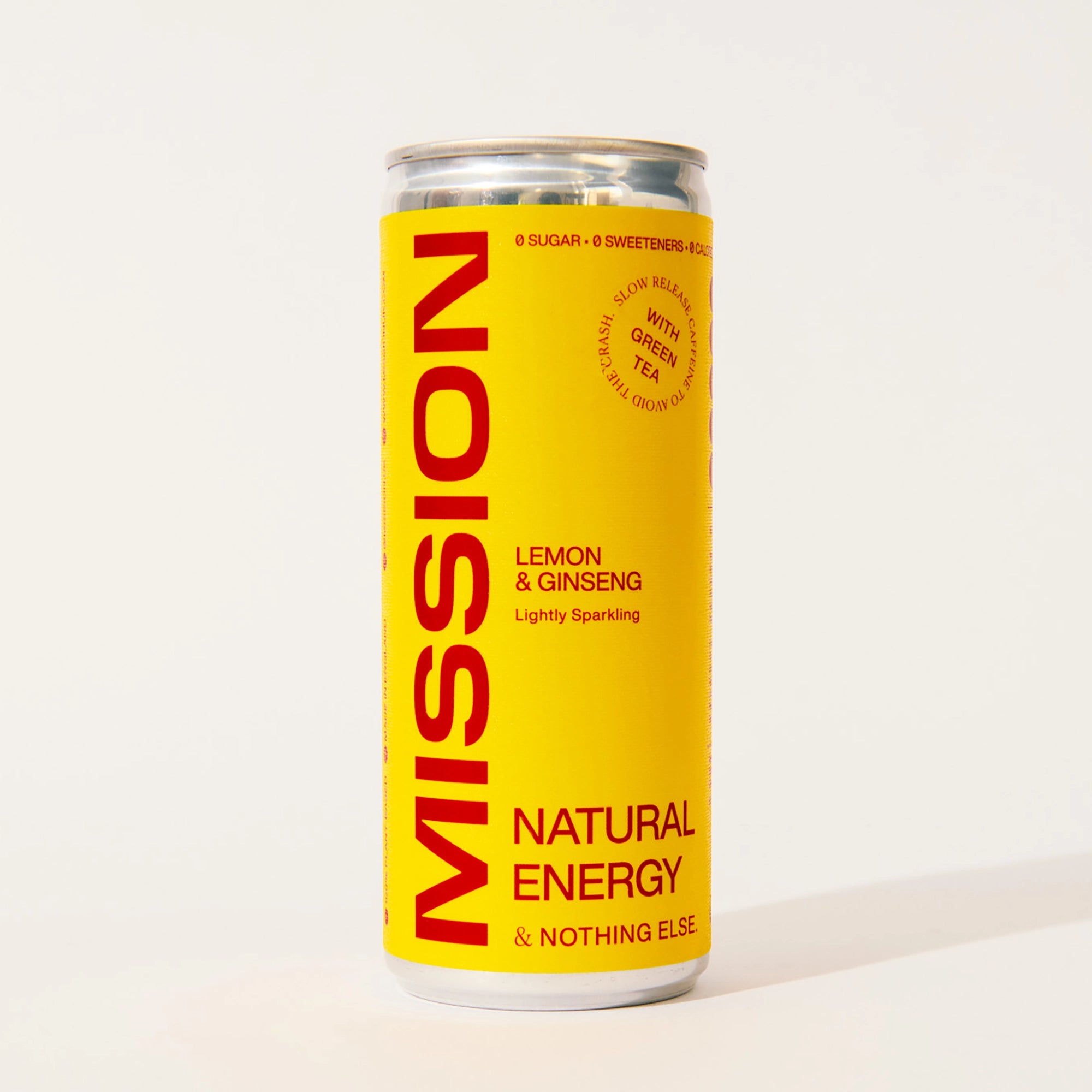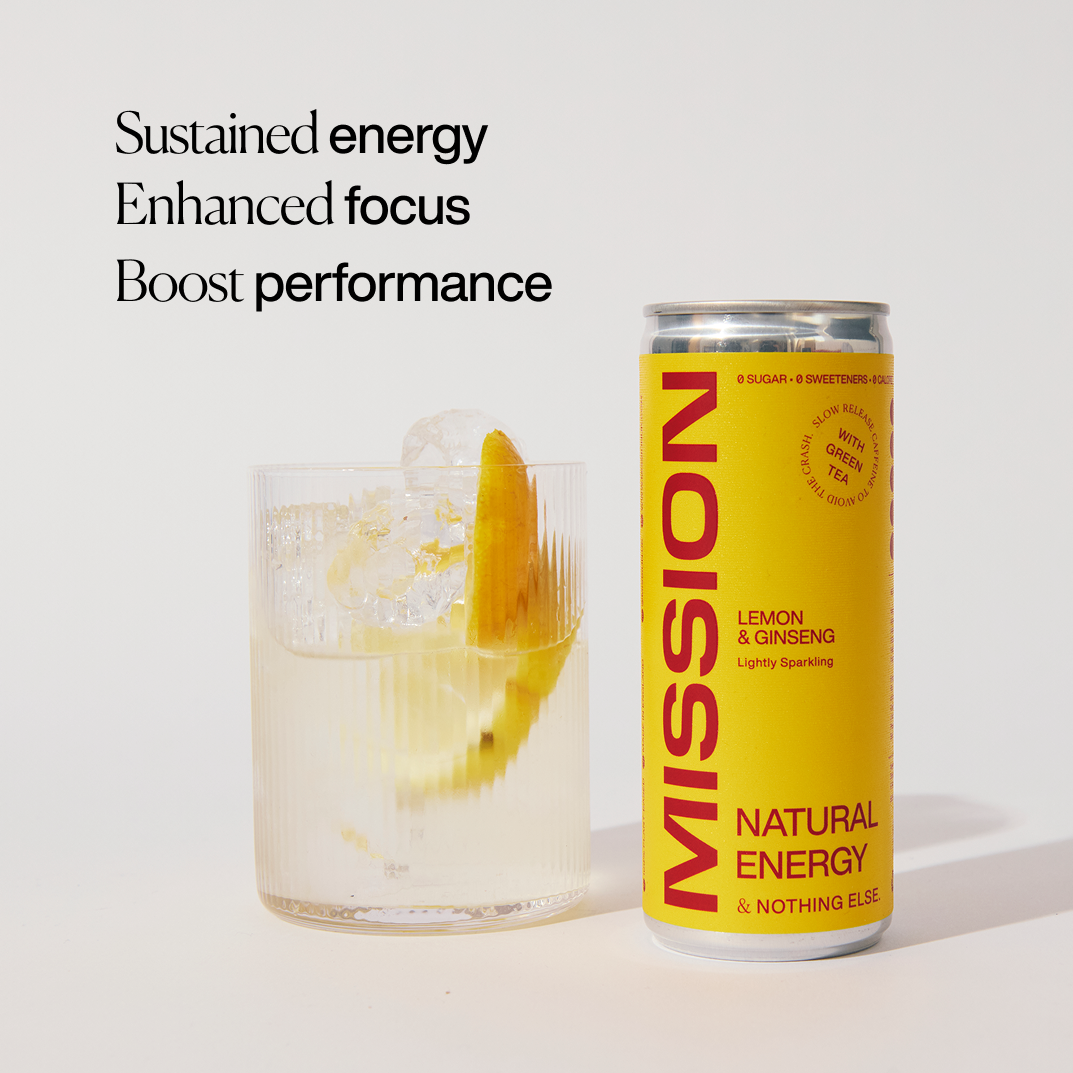Five of the Best Natural Energy Drinks
What are energy drinks?
An energy drink usually contains large amounts of caffeine, added sugars and artificial additives, and other ingredients such as legal stimulant taurine. Their purpose is to provide a boost of energy, and to enhance mental performance. It will be written all over their packaging: ultra energy, boost, wings - but you won’t find anywhere stating about the inevitable energy crash you will feel a couple of hours later. Nor will they delve into the synthetic ingredients used and how there’s emerging evidence about harm to our health. In our modern day and age, despite the knowledge of how harmful synthetic energy drinks can be for our health, these typical energy drinks are still something many people reach for. That is because we look for convenience, short cuts and quick fixes to our problems. Energy drinks DO provide the benefits they claim - there’s no denying that. But those amazing benefits and energy highs, come at a cost. Jitters, increased blood pressure, energy crashes, stomach issues, the lot.
Ultimately, energy drinks have been designed for dependency, not long-term performance. This was true until recently. Why does a boost in energy have to come with such big costs to our health? The innovators out there realised that energy drinks don’t have to be so costly, and there came the introduction to natural energy drinks. Relying less on the rapid hit of caffeine and high sugar boosts, and instead turning to sustained caffeine release, for more sustained energy. Enter: green tea, green coffee, matcha, yerba mate as caffeine sources. Wave goodbye to heaps of sugar to make drinks taste sweet, jittery high levels of caffeine content and a long list of sweeteners, additives and preservatives.

What is the difference between energy drinks and natural energy drinks?
Without stating the obvious too much, typical energy drinks use artificial ingredients and synthetic caffeine to provide their energising benefits. The result is a quick fix, a burst of energy thanks to the high amount of caffeine. However, this big spike leads to a bigger crash in energy, as the caffeine effects wear off. On top of this, the amount of sugar used to sweeten those drinks, or, the amount of sweeteners used in the ‘sugar free’ versions can be detrimental to our health. Natural energy drinks differ because their focus is more on long term performance, rather than a short term fix that leads to dependency. One of the biggest differences between energy drinks vs natural energy drinks are the sources of ‘energy’ they use. You’ll usually find that the ingredients list contained in a natural energy drink will be shorter and contain all familiar words. Natural energy drink ingredients generally contain more natural ingredients e.g. natural fruit flavourings, cold-pressed juices etc. By using these extracts, it enables a refreshing flavour with less sugar.

How harmful can energy drinks be?
As with most things, moderation is key. As a one-off, a high sugar energy drink won’t cause harm, per se. You will however, notice unpleasant side effects linked to consuming big hits of caffeine and sugar. Things like breathing difficulties, an irregular heartbeat, jitters, increased feelings of anxiety, headaches and of course the dreaded energy crash once your body has processed them. The more energy drinks you consume, the more likely you are to experience these side effects to a worse degree.
Just a quick note - we aren’t saying caffeine is the enemy. We do however strongly believe that too much caffeine is too readily available, and that many people consequently consume far too much of it. The knock-on effect of this is huge.
From daily energy lapses to being trapped in poor sleep, many of us are struggling with the consequences of caffeine overconsumption right now, and relatively few of us realise that caffeine is the cause. One of the biggest issues is that most people aren’t aware of the amount of caffeine they are consuming, or how long the caffeine lasts (it stays in the system for an average of 6 hours). Energy drinks are a huge culprit in this vicious energy cycle.
Are energy drinks worse for you than coffee?
Broadly speaking, yes, unnatural energy drinks are worse for you than coffee. That is because you’re not just taking on caffeine, you’re taking on a whole load of sugar and artificial ingredients, too. Whereas, predominantly with a standard coffee (let’s say a black americano), you’re getting 100% coffee - which provides a hit of caffeine as well as antioxidants. You’ll still get the same energy spike and crash as you would with energy drinks, but that will be solely down to the amount and type of caffeine that coffees provide.

What do we mean by caffeine type?
If you’ve done a lot of research into energy drinks, you’ll be aware that caffeine is a stimulant that appears in many different forms and across many different sources. Some forms are rapidly absorbed, and some forms are processed more slowly - this is usually due to the presence of an amino acid that works to slow down the breakdown of caffeine. Both caffeine in coffees and the caffeine used in energy drinks are rapidly absorbed, and come in high quantities, which is why you get the big hit of energy and the subsequent crash. Alternatively, caffeine that’s processed more slowly is found in some natural energy drinks, meaning the physical and mental benefits of caffeine are still felt, but without our body processing synthetic additives and without a caffeine crash.
Which energy drink ingredients should be avoided?
The ingredients lists of typical energy drinks can be a scary place to look. You’ll come across a whole load of words that you probably won’t know how to pronounce. The main ones you typically want to avoid are:
- Regulators/stabilisers such as starches and gums
- Maltodextrin - often used as a sugar alternative. It acts in a similar way to sugar but actually has a much higher glycemic index score than table sugar, which means it will give you a rapid hit of energy, but also play a big part in the big energy crashes experienced.
- What is Glycemic Index? This is a rating system used for foods that contain carbohydrates. It shows how quickly different foods affect your blood sugar level. It is recommended that we aim for foods with a GI score of 19 or lower. Maltodextrin usually has a GI score of 106 to 136.
- Sweeteners such as aspartame. There is not enough research into the long term effects of sweeteners. They have often been viewed as a much healthier alternative to sugar, but recent news articles have revealed that aspartame was declared a possible carcinogen by the World Health Organisation and the International Agency for Research on Cancer (IARC).
- Oils such as palm or rapeseed, which our body’s really struggle to break down. The result is a lot of inflammation.
- Colours - they are completely unnecessary chemicals. If you’re drinking from a can, why does it need to be a nice colour anyway?

6 of the best natural energy drinks
The emergence of natural energy drink alternatives means that we don’t have to sacrifice the energy benefits that we seek, or the satisfaction of a cold, refreshing drink to wake ourselves up. There’s an abundance of different companies out there, all with different takes on natural energy drinks, but all with the same aim: steering clear of artificial ingredients and moving towards more natural ones, to help you unlock your natural energy. Here’s a list of our top 6 natural energy drinks:
- Mission Natural Energy: Mission have created world's first all-natural, no sugar, no sweetener natural energy drinks, packed with functional, light energy & nothing else. High in L-Theanine, which slows the rate at which we process caffeine, these result in a much calmer, focused mood and the feeling of a natural energy boost. No compromise, no crash. Click here to learn more about Natural Energy.
-
Mission Perform: Led by the notion that there is much more to energy than caffeine, Mission has harnessed the power of plants in this blend - 100% natural ingredients, no sugar / sweetener, no preservatives or additives. Using Yerba Mate as a natural caffeine source, alongside natural nootropics that support focus and alertness, all without the jitters. For the same buzz, but no crash, and a real taste of clean energy, this is the go-to. Perform is used by over 100 international athletes and has set Guinness World Records in endurance sport. Click here to learn more about Mission Perform.

- Moju: ginger shots are a great way to get a natural boost. These clever shots provide their energising boost using all natural ingredients in a small serving.
- Perfect Ted: Harnessing the power of matcha, you get the antioxidant and slow release caffeine goodness, in a refreshing can.
- Tenzing: this drink uses natural sources of caffeine (such as green tea and green coffee). Some of their drinks are fortified to contain added electrolytes and vitamins, too, for extra metabolic support.
-
Virtue: provides caffeine from green coffee beans plus B-vitamins, which are associated with energy. Their drinks provide the same amount of caffeine (80mg) as other synthetic energy drinks but mostly use natural ingredients.



